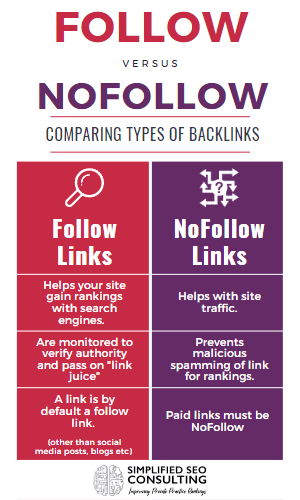Summer can often bring a noticeable “summer slowdown” for many businesses, including those in the mental health field. With vacations, holidays, and a general shift in routine, it’s common to see a dip in client inquiries and engagement. This seasonal lull presents a perfect opportunity to focus on strengthening your online presence through strategic SEO efforts.
One of the key components of SEO is building backlinks. Backlinks, also known as inbound links, are links from one website to another. However, not all backlinks are created equal. Ethical backlink building is essential to ensure that your SEO efforts are sustainable and effective in the long run. Building backlinks ethically means earning them through high-quality content and genuine relationships, rather than resorting to shortcuts that can harm your site’s reputation and rankings.
Let’s dive into the essentials of building backlinks ethically and effectively, helping you make the most of the summer slow down to enhance your SEO and prepare for the busy seasons ahead.

Do Backlinks Still Matter in SEO?
Yes, backlinks are still a crucial factor in SEO. They act as endorsements from other websites, signaling to search engines that your content is valuable and trustworthy. When a reputable site links to your content, it can boost your search engine ranking and increase your visibility. However, it’s important to focus on quality over quantity. High-quality backlinks from authoritative sites can significantly impact your SEO more than numerous low-quality links. In the changing world of SEO, backlinks continue to be a key component in building a strong online presence on Google.
How Many Backlinks Do You Need for SEO?
At Simplified SEO Consulting, we recommend aiming for at least 100 backlinks to start with. That might sound like a huge number and feel a bit overwhelming at first. Yes, 100 is a lot of backlinks. However, it is very attainable for most websites and a great place to start!
To put things into perspective, many of you reading this will actually need significantly more than 100 backlinks. But don’t be discouraged; building backlinks is a gradual process. If this sounds overwhelming, schedule a strategy session with one of our skilled specialists. We also have numerous other blogs that can guide you to ethically build backlinks.
Creating a plan that works for you and your practice is essential. Start by setting SMART goals (specific, measurable, attainable, realistic, and time-specific). Look at your schedule and see where you can dedicate time to building backlinks.
For example, set a goal to build one backlink every week for a month. This way, you can gradually build up your backlink profile without feeling overwhelmed.
Is it OK to Pay for Backlinks?
While it might seem that paying for backlinks can expedite your SEO efforts, it’s not a recommended practice. Paying for backlinks can be seen as a shortcut, but it doesn’t align with Google’s goal of providing the most helpful and relevant search results. Instead, it artificially boosts your site’s authority, which Google frowns upon.
Paying for backlinks comes with significant risks. Search engines like Google strive to deliver high-quality and relevant content to users. When backlinks are bought, they disrupt the natural link-building process, promoting content that might lack authenticity or real value.

How to Get Backlinks for Free?
Instead of paying for backlinks, there are several ethical strategies to build high-quality backlinks this summer:
- Create Valuable Content: Publish informative and engaging content that naturally attracts backlinks from other websites.
- Guest Blogging: Write guest posts for reputable websites in your niche, including a link back to your site.
- Build Relationships: Network with other professionals and therapists in your industry to earn backlinks through collaborations and mentions.
- Podcast Guesting: Participate as a guest on relevant podcasts. Share your insights and expertise, and in return, the podcast host often links back to your website in the show notes.
- Guest Speaking: Offer to speak at webinars, online conferences, or industry events. These platforms typically promote their speakers, providing you with backlinks from their event pages or promotional materials.
- List in Therapist Directories: Ensure your practice is listed in reputable therapist directories. These directories often provide a backlink to your site, increasing your visibility and authority.
Final Thoughts from an SEO Specialist
Implementing ethical backlink strategies requires commitment and patience, but the rewards are well worth the effort. By avoiding shortcuts like paying for backlinks and instead focusing on creating high-quality content, guest blogging, networking, and engaging with industry communities, you can build a strong backlink profile that will benefit your site in the long run. These strategies not only improve your site’s SEO but also enhance its overall reputation and authority.
While the temptation to take shortcuts can be strong, it’s important to remember that ethical practices ultimately yield the best results. By prioritizing quality over quantity and focusing on genuine, value-driven content, you can achieve sustainable SEO success that withstands algorithm changes and maintains your site’s integrity.

Start Ethically Building Backlinks Today!
Building a list of high-quality backlinks that will enhance your practice’s online presence takes time and effort. At Simplified SEO Consulting, we understand the challenges you may encounter on this journey. Our team is dedicated to providing the support you need to overcome these obstacles and achieve improved SEO rankings. Here’s how you can get started on your SEO journey with us:
- Schedule a free consultation with us to share your SEO goals.
- Start implementing effective backlink strategies to boost your site’s authority and search engine ranking.
- Watch your site climb its way to the first page of Google!
Other Services We Offer:
We recognize that SEO encompasses a wide range of elements that you may need assistance with on your site. That’s why we offer a comprehensive suite of SEO services designed to address all your needs. Our Done For You SEO Services allow our experts to handle all aspects of your SEO, from keyword research to content optimization and backlink building, so you can focus on your practice. If you prefer a more hands-on approach, our DIY Online SEO Courses let you learn the fundamentals of SEO at your own pace, equipping you with the knowledge and skills to manage your own SEO. For a more intensive and guided experience, our 12-Week Done With You Intensive SEO Program offers close collaboration with our team, combining hands-on training with expert guidance to significantly improve your SEO in just 12 weeks.
About the Author

Olivia graduated from Central Michigan University with a bachelor’s degree in Social Work. Combining her deep understanding of social work principles with her expertise in SEO, she is dedicated to empowering therapists to connect effectively with their ideal clients. Through strategic SEO techniques, Olivia enjoys helping therapists enhance their online visibility and attract clients who can benefit most from their services. Her goal is to bridge the gap between mental health expertise and digital marketing, ensuring that therapists can focus on what they do best – providing compassionate care – while reaching those in need through effective online presence.

 While there are many ways to gain backlinks, only a portion of them will help you achieve the goals of long-term SEO success. The goal of achieving higher rankings and increased online visibility has led some to explore shortcuts that, while seemingly promising, tread on shaky ethical ground. So, today we are addressing a controversial practice that has been the subject of many debates — paying for backlinks. As websites vie for the top results in search engines like Google, the allure of expediting the process through purchased endorsements has become increasingly tempting. However, beneath the surface of this seemingly innocuous strategy lies a moral dilemma.
While there are many ways to gain backlinks, only a portion of them will help you achieve the goals of long-term SEO success. The goal of achieving higher rankings and increased online visibility has led some to explore shortcuts that, while seemingly promising, tread on shaky ethical ground. So, today we are addressing a controversial practice that has been the subject of many debates — paying for backlinks. As websites vie for the top results in search engines like Google, the allure of expediting the process through purchased endorsements has become increasingly tempting. However, beneath the surface of this seemingly innocuous strategy lies a moral dilemma.
 The real cost of these practices is in the erosion of search result trustworthiness and the promotion of content that lacks authenticity. Understanding therapist directories, with their potential to support specific practices, emphasizes the importance of discernment in link-building endeavors, distinguishing between authentic support and artificial attempts to manipulate search engine rankings. Ultimately, investing time and effort in ethical backlink strategies proves to be the sustainable path toward long-term SEO success for therapists.
The real cost of these practices is in the erosion of search result trustworthiness and the promotion of content that lacks authenticity. Understanding therapist directories, with their potential to support specific practices, emphasizes the importance of discernment in link-building endeavors, distinguishing between authentic support and artificial attempts to manipulate search engine rankings. Ultimately, investing time and effort in ethical backlink strategies proves to be the sustainable path toward long-term SEO success for therapists.




 Having your practice present in therapist directories is a great way to accomplish just this. We know therapists aren’t made of money, which is why we always want to be aware of what free therapist directories are out there. But, being listed on paid therapist directories can be a great way to help expand the digital presence of your practice, especially if you offer more niche services or serve specific communities. We have previously created a more
Having your practice present in therapist directories is a great way to accomplish just this. We know therapists aren’t made of money, which is why we always want to be aware of what free therapist directories are out there. But, being listed on paid therapist directories can be a great way to help expand the digital presence of your practice, especially if you offer more niche services or serve specific communities. We have previously created a more  Therapists looking to create a listing on this directory can expect a $30 membership fee each month for a basic directory profile. But, there are a number of
Therapists looking to create a listing on this directory can expect a $30 membership fee each month for a basic directory profile. But, there are a number of  In addition to the directory, Open Path offers resources, articles, and a supportive community to help individuals navigate their mental health journey. The platform promotes the belief that everyone deserves access to quality mental health care, regardless of their socioeconomic situation. Open Path Collective is a valuable resource for individuals seeking affordable therapy options. By connecting them with therapists who offer reduced-rate sessions, the directory helps bridge the gap between those in need of mental health support and the professionals who provide it.
In addition to the directory, Open Path offers resources, articles, and a supportive community to help individuals navigate their mental health journey. The platform promotes the belief that everyone deserves access to quality mental health care, regardless of their socioeconomic situation. Open Path Collective is a valuable resource for individuals seeking affordable therapy options. By connecting them with therapists who offer reduced-rate sessions, the directory helps bridge the gap between those in need of mental health support and the professionals who provide it.




 What Is the Difference Between Crawling, Indexing, Rendering, and Ranking?
What Is the Difference Between Crawling, Indexing, Rendering, and Ranking?
 Sterling Humburg-Cage graduated from the University of Missouri with a BA in Psychology in 2020. He integrates what he learned in school into his work as an SEO Specialist with Simplified SEO Consulting. Sterling prides himself on helping current clients & alumni problems solve difficult SEO issues. He’s great at giving clients multiple options about how to approach a situation and responding quickly to client concerns. Since he started, Sterling has met frequently with our alumni and provided them extra problem-solving support. He often goes the extra mile to do outside research and make sure private practice owners have everything they need to rank well on search engines long term for the keywords their ideal clients are using!
Sterling Humburg-Cage graduated from the University of Missouri with a BA in Psychology in 2020. He integrates what he learned in school into his work as an SEO Specialist with Simplified SEO Consulting. Sterling prides himself on helping current clients & alumni problems solve difficult SEO issues. He’s great at giving clients multiple options about how to approach a situation and responding quickly to client concerns. Since he started, Sterling has met frequently with our alumni and provided them extra problem-solving support. He often goes the extra mile to do outside research and make sure private practice owners have everything they need to rank well on search engines long term for the keywords their ideal clients are using! You know you need to get backlinks to improve your SEO, however. . . you simply don’t have time for all that! It sounds overwhelming. There are so many different tactics and methods and a quick Google search leaves your head spinning. You’re a busy private practice owner, and managing a website and blogging is more than enough. Getting other sites to link to you as well. Ugh. It’s all just too much.
You know you need to get backlinks to improve your SEO, however. . . you simply don’t have time for all that! It sounds overwhelming. There are so many different tactics and methods and a quick Google search leaves your head spinning. You’re a busy private practice owner, and managing a website and blogging is more than enough. Getting other sites to link to you as well. Ugh. It’s all just too much. The most common way to get backlinks as a therapist is to do some outreach and guest post on others sites. Yes, you do have to spend some time writing and potentially even come up with a pitch. But the research and time spent has a great return. Writing a quality guest post for another website is good for your SEO and gets your name out into the world! I recommend coming up with a few ideas for blog posts and researching websites in your field who might benefit from your voice. Then it’s just a simple email and you’re (hopefully) on your way to getting a solid backlink!
The most common way to get backlinks as a therapist is to do some outreach and guest post on others sites. Yes, you do have to spend some time writing and potentially even come up with a pitch. But the research and time spent has a great return. Writing a quality guest post for another website is good for your SEO and gets your name out into the world! I recommend coming up with a few ideas for blog posts and researching websites in your field who might benefit from your voice. Then it’s just a simple email and you’re (hopefully) on your way to getting a solid backlink! Consider Done for You SEO with Simplified SEO Consulting
Consider Done for You SEO with Simplified SEO Consulting Mason Aid (They/He) is a Mental Health SEO Copywriter at Simplified SEO Consulting. They love solving the puzzle of fitting the right keywords into your copy so you attract your dream clients. They have their bachelor’s Degrees in Sociology and a continued interest in advocating for marginalized people and mental health.
Mason Aid (They/He) is a Mental Health SEO Copywriter at Simplified SEO Consulting. They love solving the puzzle of fitting the right keywords into your copy so you attract your dream clients. They have their bachelor’s Degrees in Sociology and a continued interest in advocating for marginalized people and mental health. Website
Website
 Jewel is currently part of the
Jewel is currently part of the  1) The Guest Blog Post that Re-Uses an Old Idea
1) The Guest Blog Post that Re-Uses an Old Idea
 About the Author
About the Author